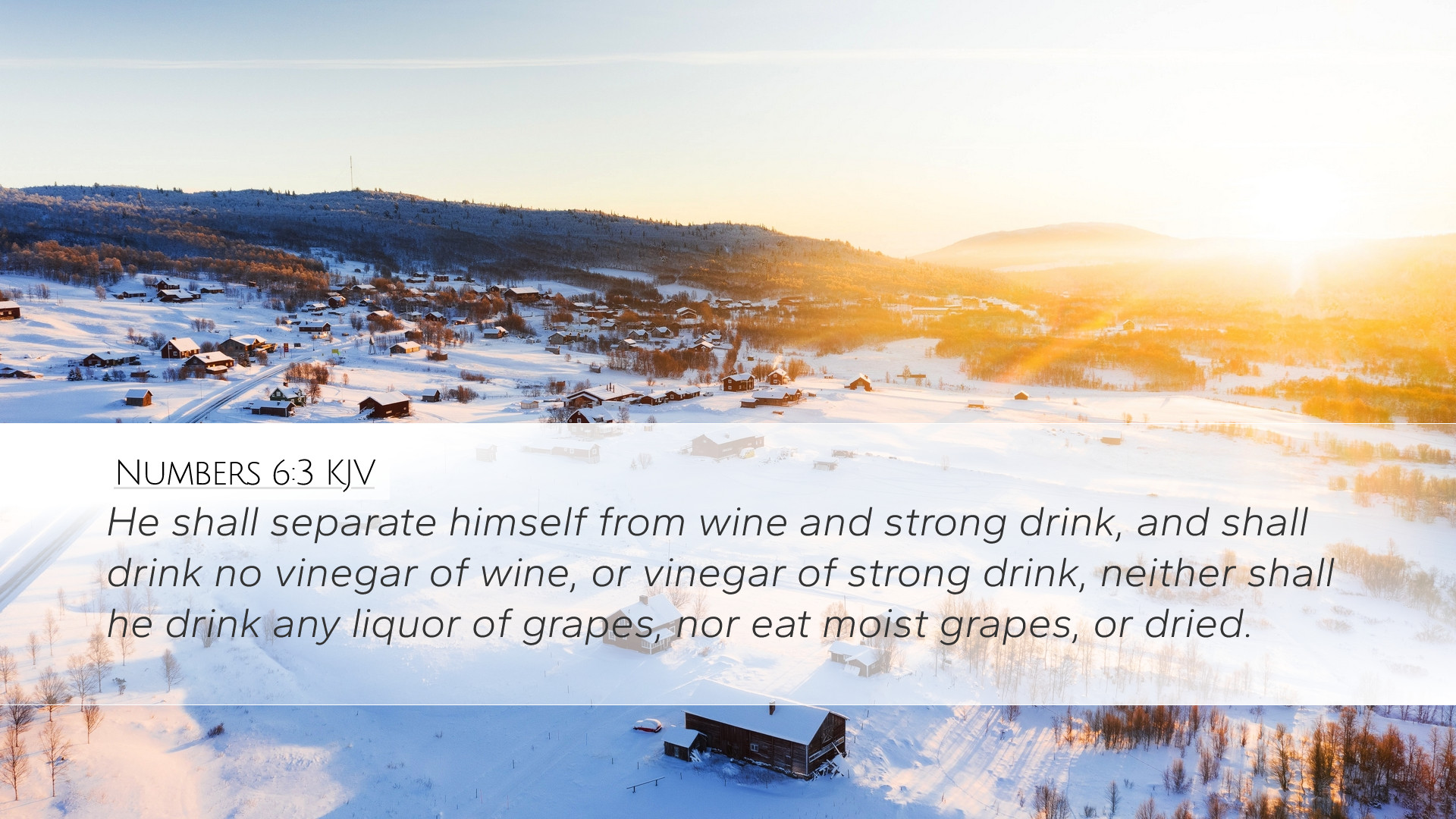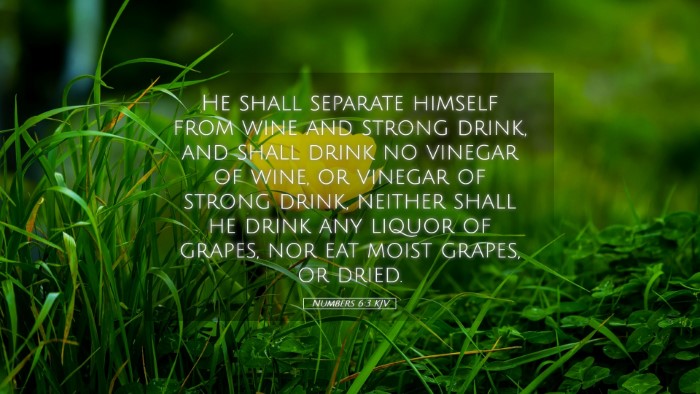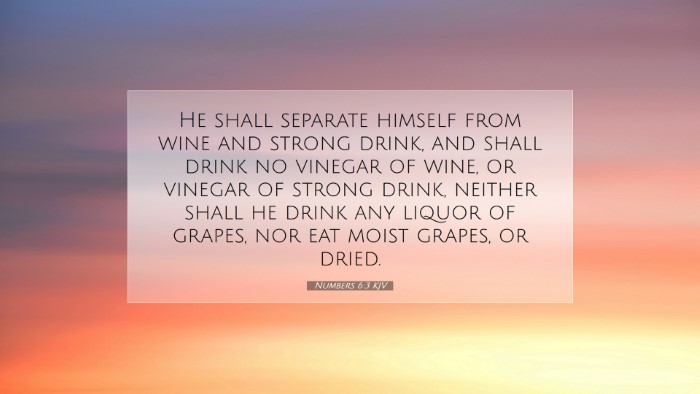Bible Commentary on Numbers 6:3
Numbers 6:3 reads: "He shall separate himself from wine and strong drink, and shall drink no vinegar of wine, or vinegar of strong drink, neither shall he drink any liquor of grapes, nor eat moist grapes or dried." This verse is part of the instructions regarding the Nazarite vow, which denotes a position of consecration and dedication to the Lord. This analysis will delve into the spiritual and theological dimensions reflected in this verse, drawing from the insights of various public domain commentaries.
Understanding the Nazarite Vow
The Nazarite vow, as described in Numbers 6, is a unique expression of commitment to God. The individuals who chose this path were called Nazarites, and they subjected themselves to specific restrictions intended to symbolize their dedication. The vow served to visibly distinguish these individuals as holy unto the Lord.
The Prohibition of Alcohol
The prohibition against wine and strong drink is notable. Matthew Henry emphasizes that this restriction teaches a fundamental aspect of devotion: the necessity of abstaining from earthly pleasures to pursue a deeper, sacred relationship with God. He notes that wine can symbolize joy and festivity, yet its consumption can lead to spiritual distraction. Therefore, the Nazarite’s separation from intoxicating substances reflects a call to prioritize spiritual sobriety.
Albert Barnes aligns with this idea, suggesting that the abstention from wine signifies a commitment to a lifestyle governed by divine principles rather than personal desires. This commitment showcases the seriousness of the vow and amplifies the individual's focus on their relationship with God, reflecting the larger biblical principle of holiness and separation from worldly influences.
Symbolism of Dedication
The restrictions placed upon the Nazarite, particularly those regarding consumption, were deeply symbolic. Adam Clarke elaborates that abstaining from wine represents a departure from the common practices of society. In this light, the Nazarite's life becomes a testimony of separation, echoing the call for holiness found throughout Scripture. The vow encapsulates an act of devotion that goes beyond personal choice—it's a reflection of God's command to keep oneself pure in heart and mind as a servant of the Most High.
The Broader Implications for Believers
The implications of this verse extend beyond the historical context of the Nazarite vow. For modern readers, this serves as a reminder of the call to spiritual discipline. Matthew Henry draws parallels between the Nazarite's commitment and the New Testament call for Christians to be "sober-minded." The absence of worldly indulgence invites believers to cultivate a deeper communion with God and discern His will in their lives.
Additionally, the understanding of holiness is paramount in this passage. Albert Barnes points out that the broader message is one of dedicating oneself wholly to the services of God without distractions. This is a continuous call that reflects the tradition of believers through ages, emphasizing the importance of living a life that is not only outwardly disciplined but also inwardly transformed by God's grace.
A New Testament Perspective
From a New Testament perspective, the themes of separation and dedication to God resonate through the teachings of Jesus and the Apostles. Adam Clarke highlights that the principles behind the Nazarite vow can be applied in various forms to Christian life. Just as the Nazarite was called to a life of explained separation from certain indulgences, believers are called to avoid practices that might hinder their relationship with God.
Matthew Henry adds that the New Testament Christian is also encouraged to pursue a lifestyle reflective of Christ, who modeled perfect devotion and obedience to the Father. This pursuit aligns with Paul’s exhortation in Romans 12:1 to present one’s body as a living sacrifice, holy and pleasing to God—a continuation of the call to holiness that began with the Nazirites.
Conclusion
In summary, Numbers 6:3 encapsulates the essence of the Nazarite vow, emphasizing the importance of separation from worldly elements, particularly intoxicating substances, as an expression of commitment to God. The insights from Matthew Henry, Albert Barnes, and Adam Clarke collectively highlight the interdisciplinary nature of this verse, intertwining themes of holiness, dedication, and the call for believers to live a life fully devoted to God. Consequently, for pastors, students, theologians, and Bible scholars, this passage encourages a reflection on personal and communal commitments to holiness in a world filled with distractions.


